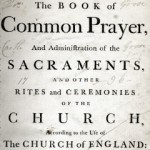
At best prayer was an uneven and elusive discipline. It was often triggered by a crisis: bad traffic, an upcoming test. “Heavenly Father,” I started, followed with a statement of something God already knew, to which I tacked a request for something else to fix the first something.
It wasn’t always desperation that drove my devotion. I thirsted for God, but seeking him in prayer proved a constant challenge. My mind wandered. The backs of my eyelids were movie screens. I could jump between praise and petition and planning a hiking trip all in the same moment, eyes still pinched like piety was my constant state of being. Such a prayer could hardly be called fervent. More like furtive, especially when I caught myself wandering. Was I availing jack? I had my doubts.
And here’s the bad news: All of this was when I actually tried. Increasingly I didn’t. I knew people who prayed for hours on end. With my scattershot supplications I could barely keep my mind on track for more than two minutes. It was frustrating. And it didn’t seem to accomplish anything. I got no victory in the areas of my life where I struggled with sin. I rarely felt close to God. It didn’t seem to matter. Prayer became an accident in my life, something occasional, more miss than hit.
I don’t know which came first: withdrawal from attempting meaningful prayer or the slow emaciation of my spirit. But they both happened. God became more an accusing thought than a person. I couldn’t stop thinking about him (though I wished desperately at times that I could), but I was at a loss for what to do about it. What to tell him? How to tell him? I could talk to the wall as easily as to God.
Then things changed. I wandered into the Anglican tradition. After years in the desert it was like stumbling into an oasis.
One of the restoratives I found was the daily office and the Book of Common Prayer. Wow. “Here’s what I needed,” I thought. And how.
For the first time in my Christian walk I felt as if I had a guide to prayer, an aid, a support. More than the endless encouragements to pray that I grew up with, here was a way to do it, a discipline to accomplish it. And as I began using the prayer book each day, I was awakened. Parts of me came alive.
I found I craved the discipline of the daily office, the act of bringing my time and schedule into conformity with something bigger and more meaningful. I’m easy for allowing the demands of the day to drive me every direction but before the throne. But the discipline of following the prayer book helps me turn those demands toward the throne instead. Because I am approaching God several times a day, confessing my sins, praising him, thanking him for his grace and provision, my faith has been strengthened and I am better able to keep perspective on the things that matter and those that do not.
It also helps me in my daily struggles. When lust starts itching my eyes, the words are already there: “Drive far from us all wrong desires, incline our hearts to keep your law. . . .” When life is unsure and unpredictable: “Be present, O merciful God, and protect us . . . so that we who are wearied by the changes and chances of this life may rest in your eternal changelessness. . . .” Because of the prayer book I have the right words — the right thoughts — when it counts.
My personal sense of incorporation into the church is greater as well. There is something powerful in the idea that millions of fellow believers are beseeching, praising, thanking God at all hours of the day using these same words. Pray without ceasing? Yeah, that’s how. And I find the unity created in our common prayers both humbling and invigorating.
I don’t know if these are fervent prayers or if they are accomplishing much, but I know a few things they’re accomplishing: I’m closer to God, my spirit’s alive, and my faith swells in places it used to shrink. I’ll take that. I thank God for that.












